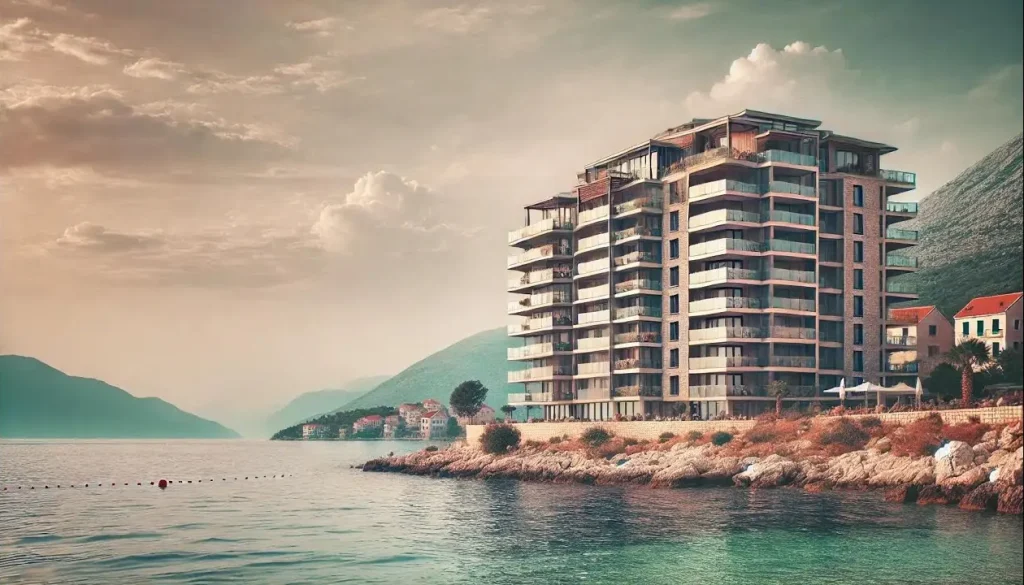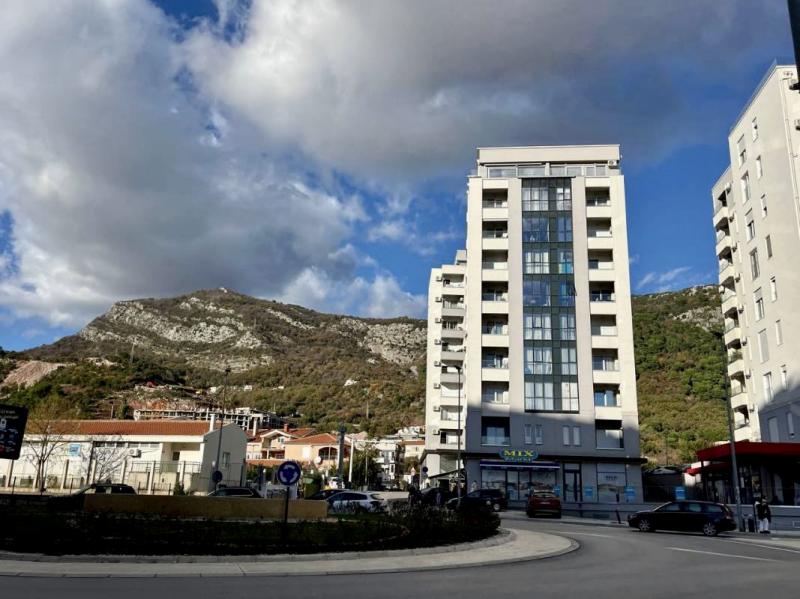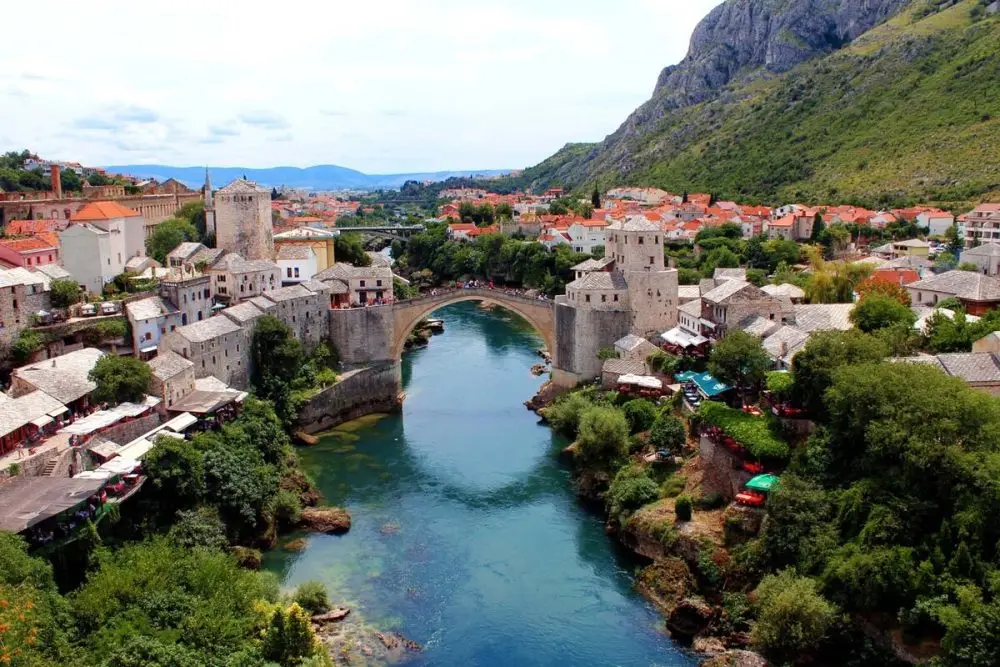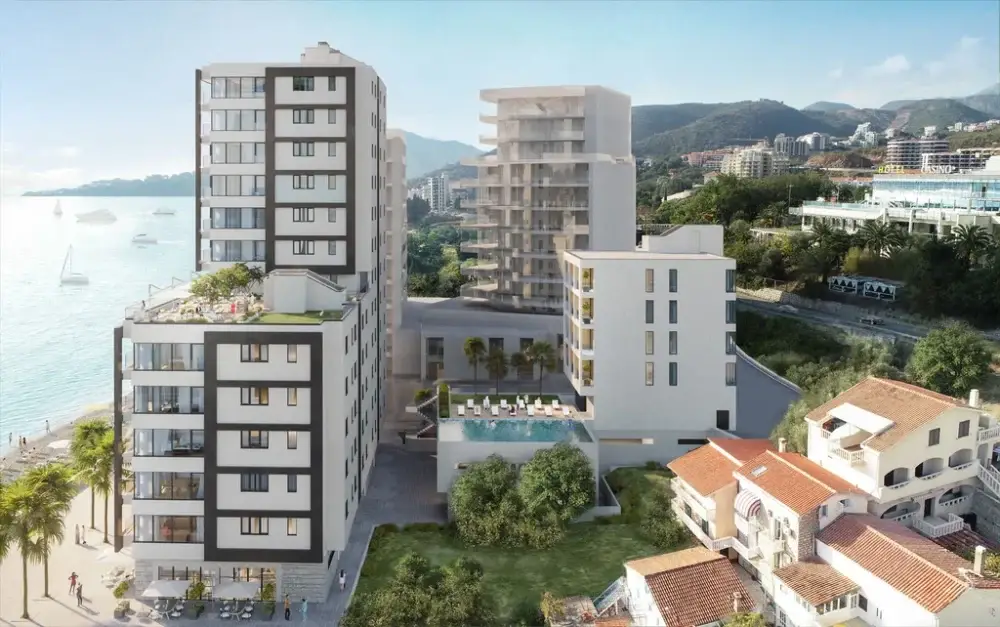Montenegro, with its breathtaking scenery, mild climate and status as one of the most affordable countries to buy property in Europe, has become a real magnet for foreign investors in recent years. Interest in the Balkan property market is steadily growing. But is it really worth buying property in Montenegro in terms of long-term benefits and feasibility? To get an honest answer, you need a detailed analysis that goes beyond the promises of realtors.
Should you buy property in Montenegro: geography and transport accessibility
Montenegro is compact but multifaceted: the Adriatic coast alternates with mountain valleys, and a well-developed road network connects tourist areas with business centres. Podgorica and Tivat airports receive regular flights from Europe, the Middle East and Asia, which ensures a steady flow of tourists and tenants. Holidays here are no longer seasonal – demand for accommodation throughout the year remains high due to the mild climate and year-round routes. What does buying property in Montenegro offer? First of all, access to a place where the mountains meet the sea, and logistics allows you to get to any part of the country in two hours.
Affordability of purchase: the financial threshold to enter the market is one of the lowest in Europe
 The average price per square metre in resort areas remains below 2,000 euros, and in the suburbs – from 900 to 1,200 euros. For an investor, this means not only a start with lower costs, but also a high potential for value growth. A typical studio flat in Budva will cost 80,000 euros, and a two-bedroom flat will cost 110,000 euros. A house in the mountains with a plot of land can be bought from 140,000. These figures allow you to form an investment portfolio even with a limited budget.
The average price per square metre in resort areas remains below 2,000 euros, and in the suburbs – from 900 to 1,200 euros. For an investor, this means not only a start with lower costs, but also a high potential for value growth. A typical studio flat in Budva will cost 80,000 euros, and a two-bedroom flat will cost 110,000 euros. A house in the mountains with a plot of land can be bought from 140,000. These figures allow you to form an investment portfolio even with a limited budget.
Pros for the investor: whether it is worth buying property in Montenegro
The decision to invest requires calculation rather than emotion. Below is a one-size-fits-all breakdown of the benefits that answers the question – is it worth buying property in Montenegro in 2025.
Key pros for the buyer:
-
Affordable prices – compared to Croatia, Greece and Italy, the cost of housing in Montenegro remains significantly lower, while the quality of finishes and views meet European standards.
-
Tourism growth – the industry is growing at 7-9% per annum, increasing demand for short term rentals. Guest apartments bring income up to 8-10% per annum.

-
Loyal legislation – foreigners can buy housing without restrictions, and transactions are transparent. The property registration process takes from 3 to 6 weeks.
-
Tax conditions – property tax does not exceed 0.1-1%, rent is taxed at a flat rate, tax burden on income remains low.
-
Potential for residence permit – buying a home makes it easier to obtain a residence permit, especially if there is entrepreneurial or tourist activity.
Minuses and risks: what to look out for
Market potential does not negate the need to analyse. Buyer’s weaknesses are lack of document verification, working with non-certified agencies and overestimation of profitability.
Major disadvantages:
-
Legal intricacies – transactions require notarisation and translation, which increases costs.
-
Risk of “paper” properties – properties without building permits or with restrictions on use are found on the market.
-
Seasonality – in remote areas, rentals only operate from May to September.
-
Low liquidity – resale can take up to 12-18 months, especially without urgent demand.
-
Problems with management companies – not all properties provide reliable service to tenants.
What gives the purchase of property in Montenegro – it is not only a benefit, but also a commitment to careful consideration of each stage of the transaction.
Rental income potential and tenure strategy
Rental income is one of the main factors that form the answer to the question whether it is worth buying a property in Montenegro. Housing on the coast is actively used in both short-term and long-term rentals. In the summer months, tourist apartments bring from 60 to 150 euros per day, depending on location and comfort level. In three months, the high season can generate up to 80% of annual income, especially with a proper marketing strategy and presence on international booking sites.
Out of season, long-term rentals remain stable: in Budva, Kotor or Tivat, a one-room flat rents for 400-600 euros per month. A homeowner in the mountains or remote suburbs gets less, but reduces maintenance costs. A proper ownership strategy includes:
-
selecting a facility with minimal operating costs;
-
calculation for combined rentals – short-term rentals in summer and long-term rentals in winter;
-
hiring a local manager with experience in working with foreigners;
-
keeping an official lease registration and paying tax.
How to choose a location: coast, mountains, suburbs
A prestigious neighbourhood isn’t always the most profitable, and growing areas often give a greater increase in value. Comparison of key areas:
-
Budva is a tourist centre with developed infrastructure, high demand, but also market saturation. Ideal for short-term rentals.
-
Tivat – prestige, yachts, investments. Prices are above average, rental demand is stable all year round.
-
Bar is a functional harbour city with affordable real estate and growth potential.
-
Herceg Novi – tranquillity, thermal springs, interest for health tourism.
-
Petrovac and Ulcinj are young markets where the price has not yet caught up with the potential.
Mountainous areas such as Kolasin or Zabljak offer accommodation for fans of active holidays. The suburbs of Podgorica or Cetinje allow you to buy a house or plot of land at below market prices, while maintaining access to the city infrastructure.
Whether it is worth buying property in Montenegro: pros in figures
A typical investment calculation: a flat costing 100,000 euros and rented for 120 days a year with an income of 80 euros per day yields a gross income of 9,600 euros. After taxes, maintenance and depreciation, this leaves a net profit of 6,500-7,000 euros, which is equivalent to 6.5-7% per annum. If the property value increases by 5-7% per year, the total income exceeds 10%.
What gives the purchase of property in Montenegro in practice:
-
moderate financial threshold for entry;
-
sustainable passive income;
-
capital growth through market dynamics;

-
the possibility of obtaining a residence permit;
-
control over the asset and flexibility in management.
Investment with prospects
 Buying property in Montenegro is a choice in favour of a real asset, a sustainable economy and a growing tourism sector. Against the background of political stability, tax transparency and openness to foreigners, the market demonstrates maturity and potential. The answer to the question, whether it is worth buying property in Montenegro, is formed not on emotions, but on numbers, logic and pragmatism. A balanced approach to the choice of object and ownership strategy turns an investment into a reasonable long-term decision.
Buying property in Montenegro is a choice in favour of a real asset, a sustainable economy and a growing tourism sector. Against the background of political stability, tax transparency and openness to foreigners, the market demonstrates maturity and potential. The answer to the question, whether it is worth buying property in Montenegro, is formed not on emotions, but on numbers, logic and pragmatism. A balanced approach to the choice of object and ownership strategy turns an investment into a reasonable long-term decision.
 en
en  ru
ru  de
de  ar
ar  es
es  nl
nl  hi
hi  fr
fr  it
it  pt
pt  el
el 











